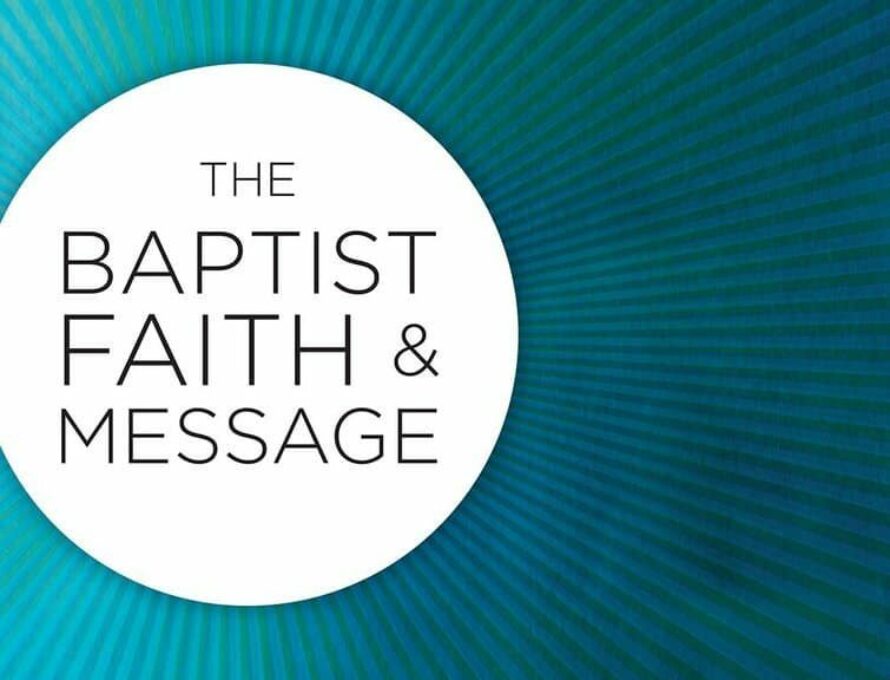As a pastor, I’m grateful for the way our church family participates and responds in worship. They are “all in” whether it’s during the musical portion of worship, praying, reciting verses, or the sermon, and I greatly appreciate it.
I especially appreciate our time together as each week we recite an article of the Baptist Faith & Message 2000. Granted, I know it’s not the same as Scripture (no Baptist should ever say it is), but it highlights some top-tier things we believe about Scripture, and that’s why it’s vitally important.
There are a lot of reasons to recite our confessional statement together. It reminds us what we Baptists hold dear. Realistically, every church is one pastor or maybe a few church leaders away from abandoning their theological moorings. And I’m sure you’re aware that some who call themselves “Baptist” have done that very thing.
Not long ago, Calvary Baptist Church (not an SBC church) in Washington, D.C. called a legally “married” lesbian couple as co-pastors to their church. I’m not on a witch hunt at all, but how in the world did a “Baptist” congregation do this? So, you’re probably saying, “I agree with you, Ken, but that could never happen to an SBC church.” I would hope not, but frankly, it could.
One of the reasons some “Baptists” have drifted into heretical territory in terms of their theology is because either their confessional statements weren’t strong enough or they ceased an allegiance to them. The same is true for other denominations.
You may have followed the story of Bishop Karen Oliveto. She was elected last summer to serve as a bishop in the United Methodist Church, despite being a practicing lesbian, married to her lesbian partner. Here’s what you need to know: The United Methodist Book of Discipline states that “homosexuality is incompatible with Christian teaching.”
Our BF&M 2000 states essentially the same thing. How could this have happened among the Methodists? The same way it can happen among Baptists. Because the doctrinal statements of their denomination were ignored.
I’d like to think that our rank-and-file Methodist friends agree with their doctrinal statement and side with the Scripture. The article I read at that time stated the bishops from the United Methodist Church announced there would be a special session of the General Conference in February 2019 in St. Louis to consider recommendations on how to “lead the church forward amid the impasse related to homosexuality.” What impasse? Their Book of Discipline makes it clear there’s no impasse; the issue is settled doctrinally.
This is my point. This is why we study our doctrines and recite our statements of faith. It’s why we preach the gospel to ourselves. If we remind ourselves often of the commitments we’ve made, we’re more likely to continue to honor them. So, remember when a church recites the BF&M 2000, there’s a good reason in so doing: we’re reminded of the truths we believe.
“Pay close attention to your life and your teaching . . .” (1 Tim. 4:16 CSB).

